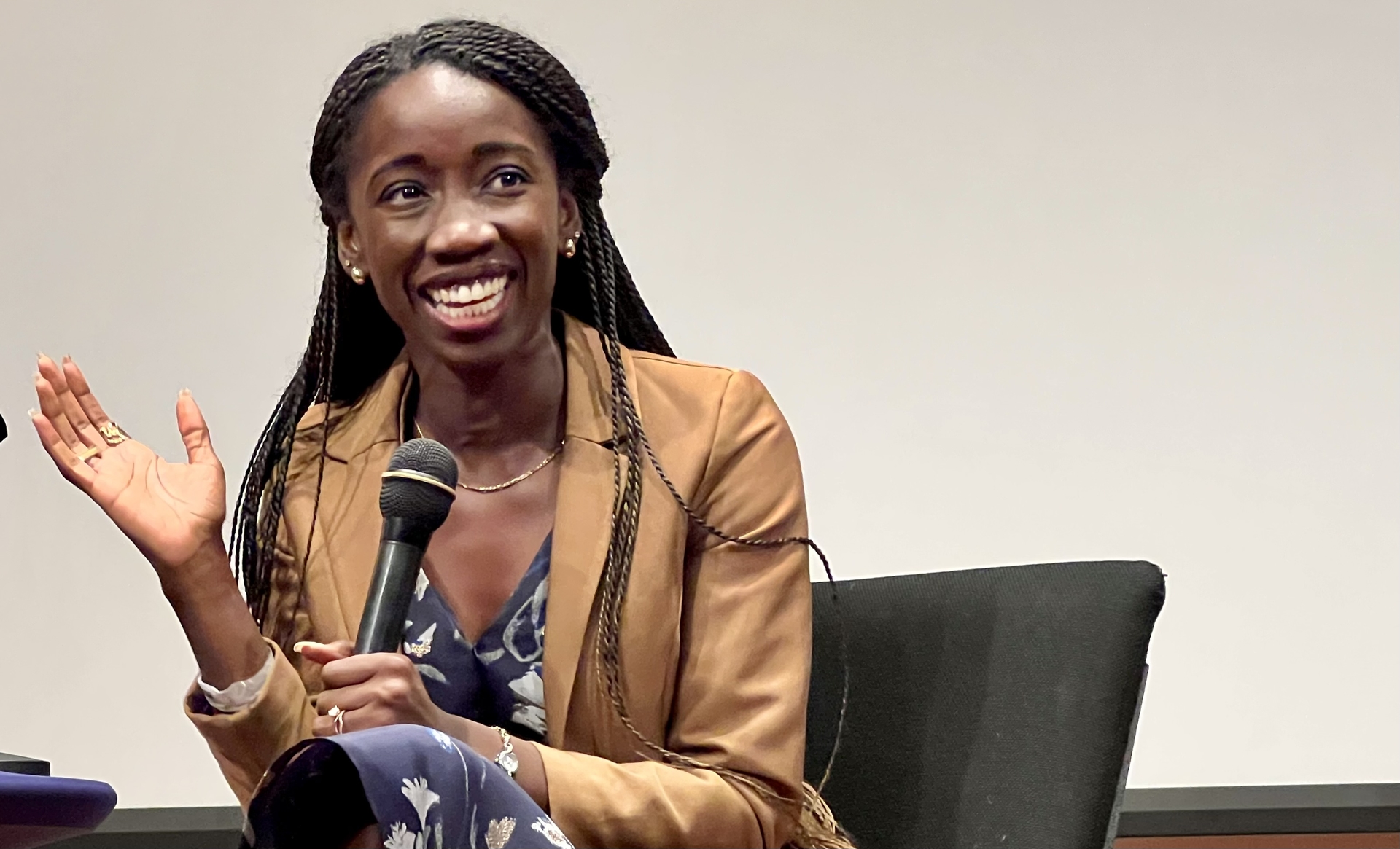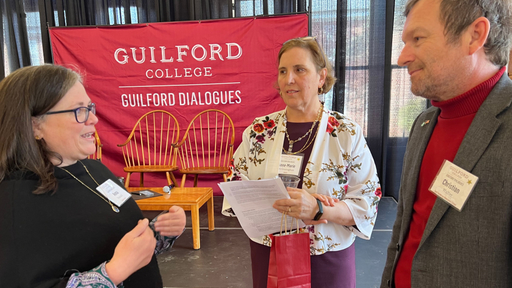
Guilford College's second annual Guilford Dialogues opened Thursday with participants tackling some of the many challenges of closing the education gap locally, nationally and globally.

Even after an award-winning documentary, extensive research and countless papers on the subject, Sally Nuamah finds it hard to fathom the educational gap between girls and boys -- not just in the United States but across the world.
"The thing that's insane to me is like you come out of the womb. Whether you're born black or girl or whatever. You have no role in that but this directly affects your life chances moving forward," she says. "That is wild to me. We can't allow that to keep happening."
Speaking at the International Civil Rights Center & Museum in Greensboro, Sally told a group of Guilford Dialogues conferees and guests that girls were an afterthought when schools were created. That's why the world needs, what Sally calls "feminist schools" to provide girls with achievement-oriented identities.
Before participating in a moderated conversation about her work, she shared her documentary "HerStory," which focuses on disadvantaged Ghanaian girls as they complete their last year of school and made plans for their futures.
Sally, an Assistant Professor of Human Development and Social Policy at Northwestern University, was the keynote speaker for the second Guilford Dialogues, a two-day conference at the College to address educational and opportunity gaps in schools.
Existing strategies don't close the gaps
Earlier in the day more than 125 panelists and attendees examined both challenges and possible solutions to creating equal access to education in a series of discussion sessions.
Steve Bumbaugh of the College Board, a nonprofit organization that oversees the AP and SAT programs, said school systems have spent decades trying to close the educational and opportunity gaps with failed programs.
“We identify challenges and jump immediately to tactical solutions like flipped classrooms, or charter schools,” says Steve. “I think by now we have a preponderance of evidence that those strategies do not work.”
Steve says too many school systems and state and local governments default to this way of thinking because “the question of how we got here is very uncomfortable.”
The most effective way to equalize those learning gaps is through increasing resources to Title I schools, public schools that receive special grants because of their high number of students identified as at-risk.
“Having done this work for most of my life… the solution is to give the poor kids what the rich kids have. Any solution that doesn’t hew to that language, that has a different solution for the problem will not work.”
Amy Steele, a former second-grade teacher who now is CEO of the New N.C. Project, which works to register and engage people of color, says equal resources for all students is a start. “We would still have racial inequalities but, gosh, that would sure help,” she says.
Supporting refugee students
Participants also addressed challenges faced by refugee and undocumented students. What too often gets ignored in the national debate about immigration policy is the plight of migrant children who come to the United States and want to go to school. Legally they are allowed to attend public schools, though they face numerous hurdles before they can sit in a classroom and after they enroll.
The challenges are just as daunting for immigrant or refugee students who want to attend college.
Anne-Marie McGranaghan works with the United Nations High Commissioner for Refugees, helping refugees and their families resettle in the United States.
Language barriers and an unfamiliarity with college entrance exams are the first of many obstacles refugee students encounter on the way to finding a college. “I have friends or family in the United States that are really kind of shopping blind,” she says. “They don’t know what we know. They don’t know about costs or scholarships.”
That’s only the start, she says. Once a refugee is accepted to a college or university, they need to apply for lawful permanent resident status. “You still need to get a visa,” says Anne-Marie, who calls the process confusing and inconsistent.
Guilford Dialogues resumes Friday at Guilford College with topics ranging from teaching and learning after the pandemic to recruiting, retaining and supporting educators of color.

